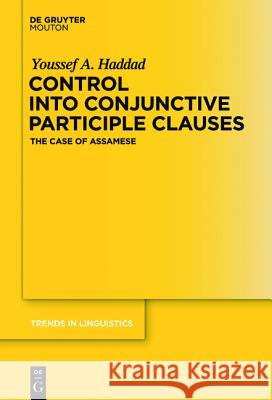Control Into Conjunctive Participle Clauses: The Case of Assamese » książka
Control Into Conjunctive Participle Clauses: The Case of Assamese
ISBN-13: 9783110238242 / Angielski / Twarda / 2011 / 238 str.
The book explores Adjunct Control in Assamese, an Indo-Aryan language spoken in North India by about 15 million people. The author works within the Minimalist Program of syntactic theory. Adjunct Control is a relation of co-referentiality between two subjects, one in the matrix clause and one in the adjunct clause of the same structure. The relevant adjuncts in Assamese are non-finite clauses commonly known as Conjunctive Participle (CNP) clauses. Four types of Adjunct Control are examined: (i) Forward Control, in which only the matrix subject is pronounced; (ii) Backward Control, in which only the subordinate subject is pronounced; (iii) Copy Control, in which both subjects are pronounced; and (iv) Expletive Control, in which case the two control elements are expletives. While Forward Control is a cross-linguistically common control pattern, Assamese also allows the other three less common structures. The author analyzes Adjunct Control as movement and provides a detailed account of the conditions that drive and constrain each of the four types of control. The theoretical implications are highlighted. The book is unique both empirically and theoretically. It is the first monograph which deals with Assamese generative syntax. It is also the first book to explore control structures in a single understudied language in such detail. In addition to Assamese, the book provides data from Telugu, Bengali, Konkani, Marathi, Tamil, and Hindi.











